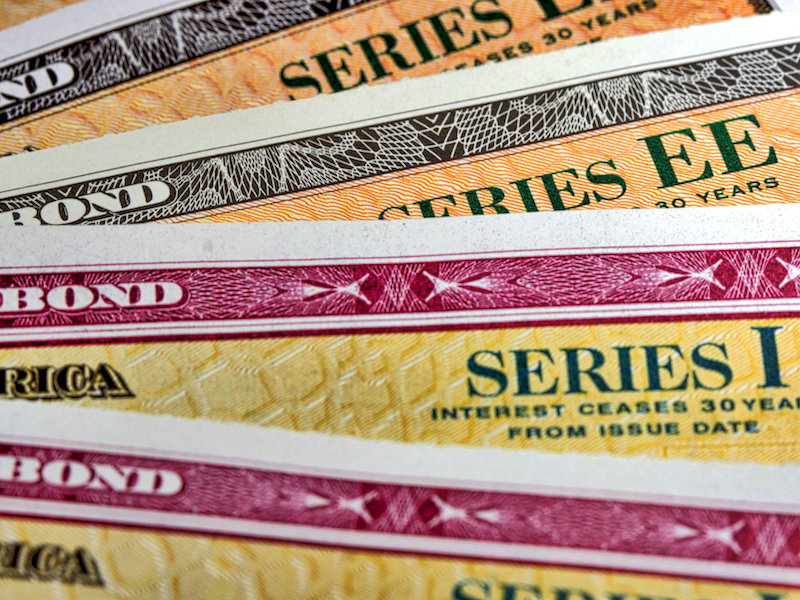bank
Your Guide to Retirement: FAQs About Bonds

Bonds are an important part of your retirement portfolio, and the closer you get to retirement, the more of them you should have.
Nevertheless, beginning investors often have a number of questions about bonds.
Here’s what you need to know.
If I Invest in a Bond, How Much Money Can I Make Off It?
That depends on the issuer and the bond’s maturity—that is, the length of time it lasts and pays you interest until the principal is returned to you. Generally speaking, longer terms pay higher interest rates.
As far as issuers go, the less stable ones will generally offer a higher interest rate to you.
This is to attract you as an investor, since you know there is a higher chance that this particular issuer will fail to make its bond payments.
For the absolute safest bet, go with Treasury bills, which the United States government issues.
What Do the Returns Look Like Compared With Stock Returns?

As you can see, stocks are the clear winner return-wise.
Why Then, are Bonds Considered Better for Retirement?
- Bonds provide you with a stability that stocks cannot, so having at least some bonds in your portfolio cushions you against major stock losses.
- Bonds provide regular income in the form of interest payments
- Bonds are incredibly secure. U.S. Treasuries are second only to cash in liquidity and safety.
- There are bonds which are non-taxable. While their yields tend to be lower, the lack of tax may cancel out this difference for individuals in higher tax brackets.
[ms_divider style=”normal” align=”left” width=”100%” margin_top=”30″ margin_bottom=”30″ border_size=”5″ border_color=”#f2f2f2″ icon=”” class=”” id=””][/ms_divider]
[ms_featurebox style=”4″ title_font_size=”18″ title_color=”#2b2b2b” icon_circle=”no” icon_size=”46″ title=”Recommended Link” icon=”” alignment=”left” icon_animation_type=”” icon_color=”” icon_background_color=”” icon_border_color=”” icon_border_width=”0″ flip_icon=”none” spinning_icon=”no” icon_image=”” icon_image_width=”0″ icon_image_height=”” link_url=”https://offers.thecapitalist.com/p/58-billion-stock-steal/index” link_target=”_blank” link_text=”Click Here To Find Out What It Is…” link_color=”#4885bf” content_color=”” content_box_background_color=”” class=”” id=””]This one stock is quietly earning 100s of percent in the gold bull market. It's already up 294% [/ms_featurebox]
[ms_divider style=”normal” align=”left” width=”100%” margin_top=”30″ margin_bottom=”30″ border_size=”5″ border_color=”#f2f2f2″ icon=”” class=”” id=””][/ms_divider]
How About the Risks?
Inflation poses a serious risk to bond holders.
The cost of goods and services goes up over time—the payout from your bonds do not.
Long-term bonds run a serious risk of not keeping up with inflation.
With all but the most stable bonds—U.S. treasuries—there is a risk that the issuer will default on its payments.
This risk is particularly magnified with junk bonds, issued by borrowers with such a poor credit rating that it will be unsurprising if they fail to make payments to you at all.
Should you choose to sell your bond before its term is out, you should be aware that bond prices are subject to market pressures and rise and fall just as stock prices do.

The above is a sample from Barclays Indices on the web, which gives information related to the latest movements in bond indices.
The price of bonds tends to have an inverse relationship to interest rates—when one goes up, the other goes down, and vice versa.
If your bond has a very long term, and you wish to sell it early, there is a good chance it will not cost what it did when you bought it, which may or may not be a good thing for you.
I’ve heard of TIPS—What Are They?
- TIPS stands for Treasury Inflation-Protected Securities
- TIPS’ rate of interest is not as high as other Treasury bonds
- However, the face value of TIPS is changed to keep up with the consumer price index.
- Thus, inflation no longer poses a risk, as the face value and interest of your TIPS go up to match.
What Should I Put in my Retirement Portfolio?
You should diversify with bonds the same way you would diversify with stocks.
A good spread would be amongst high-grade corporate bonds (avoid junk bonds) and Treasury bonds.
If you are in a high tax bracket, you may also want to look into municipal bonds, as their interest is tax-free.
How Do I Buy Bonds?
You can choose to buy almost any kind of bond through a broker, same as stock, though the transaction costs may be a whole lot higher.
For TIPS or U.S. Treasuries, it’s better and cheaper to buy from the Feds, as no broker is necessary for this transaction.
The federal government offers these at auction fairly regularly.
If you would like to look into the details, a good place to start is the TreasuryDirect Website, which among other things contains auction schedules like the example below:

If you are a small investor, look into mutual funds for diversification purposes.
Getting good diversification through individual bonds tends to cost $25,000 to $50,000, whereas bond funds will open you up to owning stakes in dozens of bonds for far less.
Which Should I Buy—Short-Term or Long-Term Bonds?
For a higher interest rate, go with longer-term bonds as opposed to shorter.
An example is, the difference between 30-year Treasury bonds and five-year Treasury notes—the former pays at least a percentage point more in interest.
The reason for this discrepancy is that the longer the life of the bond the greater the chance of erosion by inflation or interest rates.
For the majority of long-term investors, bonds that last from one to ten years are in a good sweet spot, as they have decent yields but less volatility than their longer or shorter-lived peers.
How Heavy Should My Portfolio Be In Bonds?
This depends on where you are in your life and career.
As a younger, working individual, you should put more emphasis towards stocks for their higher returns.
However, the older you get and the closer you are to retirement, the more you should move towards bonds for their stability and guaranteed income.
How Will My Bonds Be Taxed?
Some bonds generate taxable income.
Corporate bonds, for instance, will always make taxable interest payments.
Treasuries, however, only garner federal taxes while being exempt from local and state taxes.
Municipal funds are also free of federal taxes, and may be free of local and state taxes when bought in-state.
Retirement accounts may also offer tax savings.
Conclusion
Bonds are an important tool to have in your retirement arsenal.
They provide guaranteed income, and while they may not give as high a return as stocks, they are more stable.
U.S. Treasuries are considered some of the safest investments that there are.
So, however far away from retirement you may be, it is a good idea to become more educated about bonds.
The more you learn now, the more you will know what you are working with later.















